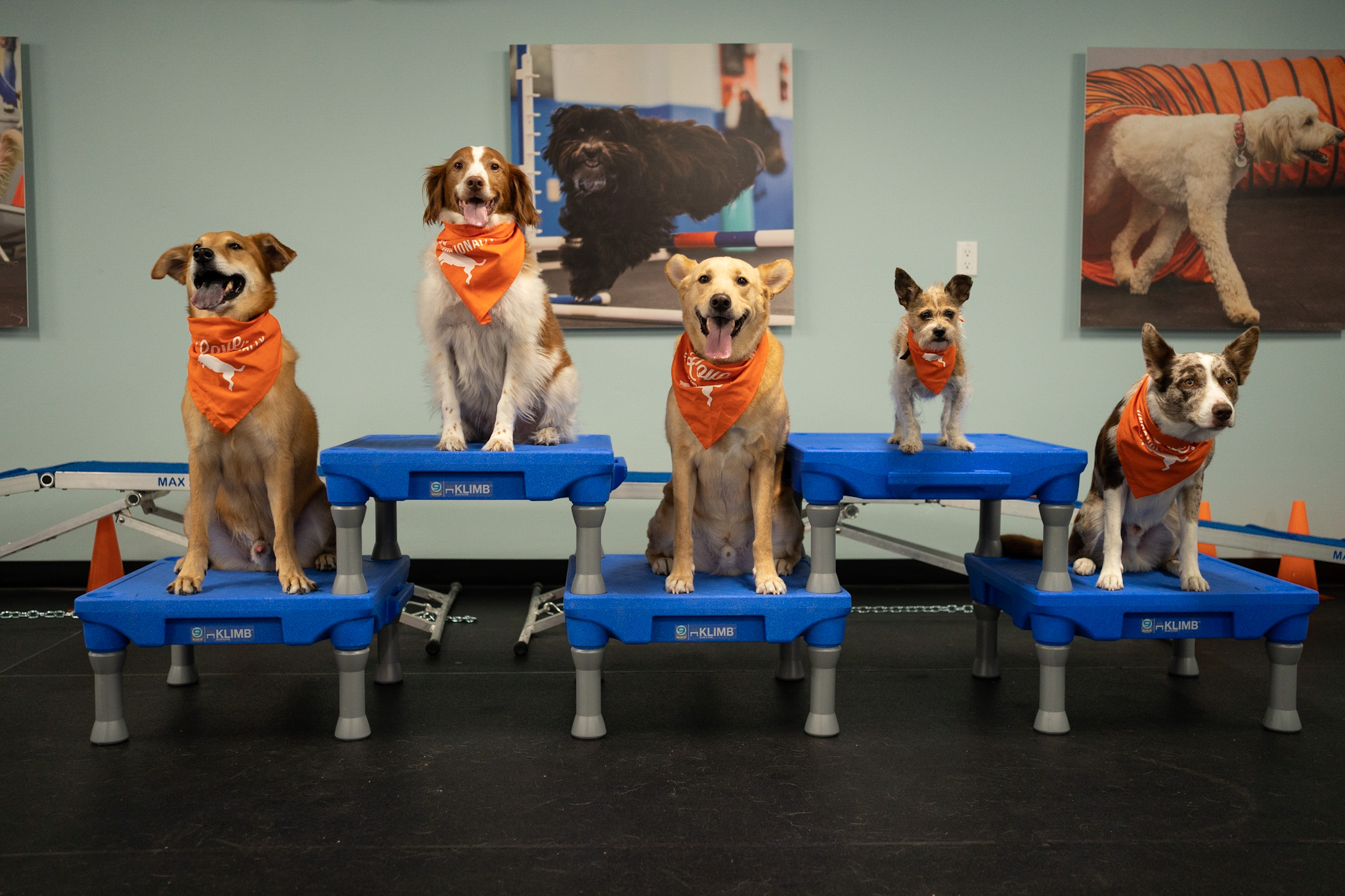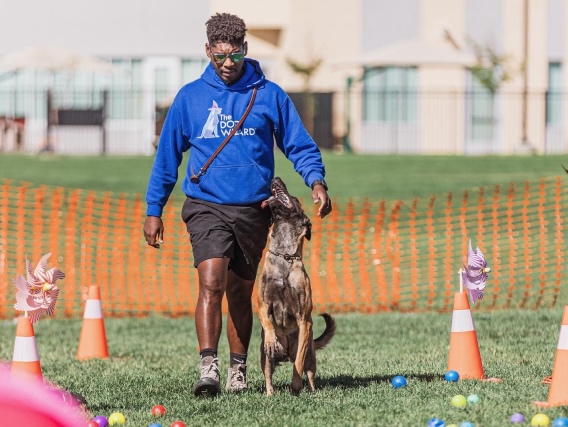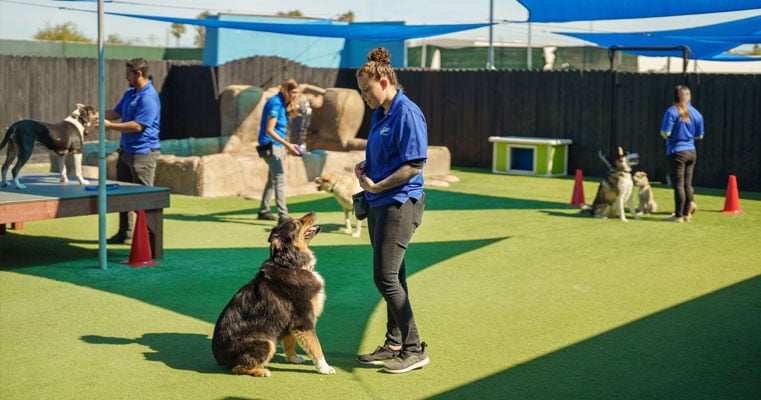Expert Insights on Dog Training Charlotte NC: Change Your Dog Today
Expert Insights on Dog Training Charlotte NC: Change Your Dog Today
Blog Article
Unlock Your Pet's Possible: Proven Dog Training Strategies for Success
Efficient canine training is a nuanced procedure that pivots on understanding canine behavior and utilizing scientifically backed strategies. By incorporating favorable reinforcement, developing clear commands, and focusing on socialization, pet proprietors can grow a productive connection with their animals.
Recognizing Pet Behavior
Comprehending pet habits is important for efficient training and cultivating a positive connection in between pets and their owners. A thorough understanding of canine body language, articulations, and social interactions is crucial for recognizing their emotions and needs. Pet dogs interact mainly via non-verbal signs; for instance, a wagging tail might indicate enjoyment, while pinned ears can signify concern or submission.

Moreover, environmental variables play a considerable role in shaping a pet's habits. Adjustments in regular, new surroundings, or the existence of unknown individuals can bring about tension or anxiety in dogs. Acknowledging these triggers enables owners to minimize damaging responses and create suitable training strategies.
Eventually, a deep understanding of dog habits lays the structure for effective training methods, boosting both habits and the general bond between the dog and its proprietor. dog training charlotte nc. This expertise is important for cultivating a well-adjusted, delighted canine companion
Favorable Reinforcement Methods
Reliable training counts greatly on positive support strategies, which have actually been revealed to generate substantial lead to forming desired habits in dogs. This method entails rewarding a dog for exhibiting specific actions, thus increasing the chance that these behaviors will be duplicated. Incentives can take various kinds, including treats, appreciation, toys, or play, depending upon what motivates the private pet dog.

It is important to slowly phase out incentives as the pet dog discovers the behavior, transitioning to recurring reinforcement. This strategy keeps the habits in time while preventing dependence on continuous incentives. By concentrating on positive support, trainers can cultivate a relying on partnership with their dogs, promoting a healthy and participating training atmosphere that improves general obedience and efficiency.
Developing Constant Commands
A fundamental aspect of effective pet training is the facility of consistent commands. Uniformity in commands is essential for reliable interaction between the trainer and the pet. When commands are consistent, canines learn to associate details words with preferred behaviors, which increases the training procedure and improves understanding.
To establish constant commands, it is crucial that all household members use the same terms and motions. For instance, if one person uses "rest" while one more says "take a seat," it can develop confusion for the canine. Select clear, unique words for commands and make certain everyone associated with the canine's training sticks to these selections.
In addition, repetition is essential. Enhance commands with regular technique, guaranteeing that the dog obtains ample opportunities to respond correctly. When a dog successfully follows a command, instant favorable support must comply with. This might be in the type of treats, praise, or play, strengthening the connection between the action and the command.
Last but not least, be patient. Developing constant commands takes time and initiative. With commitment and clarity, you will certainly help your dog establish a solid understanding of assumptions, eventually leading to a mannerly buddy.
Socializing and Exposure
Socializing a canine is essential for cultivating a positive and well-adjusted buddy. This process involves subjecting your pet to a range of settings, people, and various other animals to create their social abilities and adaptability. Early socialization, preferably between the ages of three to fourteen weeks, is crucial, as it prepares for a canine's future habits.
During socialization, aim to offer favorable experiences in various settings, such as parks, hectic roads, and homes with various other animals. Introduce your canine to different stimuli, consisting of audios, views, and scents, guaranteeing that each encounter is rewarding. This exposure assists reduce anxiety and anxiety, leading the way for an extra resistant canine.
Involving in controlled group play sessions with various other dogs can also boost social abilities, showing your pet dog appropriate interactions and limits. Focusing on socializing will significantly add to your dog's overall joy and actions throughout their life.
Conquering Common Educating Obstacles

Dogs might struggle to focus in unfamiliar or busy settings. Slowly desensitize your pet to disturbances by beginning training in a silent atmosphere and slowly introducing more stimulations as they come to be proficient.
Additionally, behavior concerns like jumping or excessive barking resource can end up being aggravating. Address these by teaching different actions, such as resting steadly when greeting visitors. Uniformity and perseverance are critical; strengthen preferred behaviors constantly and stay clear of abuse, which can result in confusion.
Finally, recognize that each pet dog is special, and training timelines may differ. Dressmaker your approach to your dog's individual needs, and seek professional support if needed. With willpower and the ideal methods, getting over these challenges can result in a well-trained, delighted canine friend.
Verdict
Finally, unlocking a pet's possible requires a thorough method that incorporates an understanding of canine habits, the application of positive support methods, and the facility of constant commands. Early socialization and exposure to varied atmospheres better boost a pet dog's flexibility and self-confidence. By resolving typical training difficulties with tailored methods and patience, a harmonious and cooperative partnership in over at this website between canine and handler can be fostered, inevitably leading to a mannerly buddy efficient in growing in various circumstances.
Efficient pet dog training is a nuanced process that pivots on comprehending canine habits and utilizing scientifically backed approaches.Recognizing dog actions is vital for effective training and cultivating a favorable partnership between pet dogs and their proprietors.Reliable training depends greatly on positive support techniques, which have actually been shown to generate substantial results in shaping preferred actions in dogs. When commands are consistent, canines find out to connect certain words with wanted behaviors, which speeds up the training procedure and boosts understanding.
In conclusion, unlocking a canine's possible demands a comprehensive strategy that includes an understanding of canine habits, the application of positive support methods, and the facility of click to investigate constant commands.
Report this page